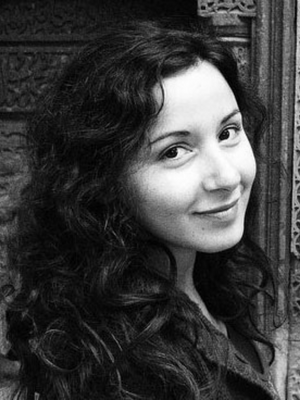Αγγλική Φιλολογία
(Πτυχίο, 4 έτη) - Εξ Αποστάσεως
Διάρκεια Σπουδών
4 έτη
Τίτλος Σπουδών
Αγγλική Φιλολογία (Πτυχίο, 4 έτη)
Επίπεδο Τίτλου Σπουδών
Πτυχίο (1ος Κύκλος Σπουδών)
Γλώσσα Διδασκαλίας
Αγγλική
Μέθοδος Φοίτησης
Εξ Αποστάσεως
Ελάχιστες Ευρωπαϊκές Πιστωτικές Μονάδες (ECTS)
240
Δεν θα γίνονται καινούριες εγγραφές για το παρόν Εξάμηνο
Αγγλική Φιλολογία (Πτυχίο, 4 έτη) – Εξ Αποστάσεως
| Διάρκεια Σπουδών | 4 έτη |
| Τίτλος Σπουδών | Αγγλική Φιλολογία (Πτυχίο, 4 έτη) |
| Επίπεδο Τίτλου Σπουδών | Πτυχίο (1ος Κύκλος Σπουδών) |
| Γλώσσα Διδασκαλίας | Αγγλική |
| Μέθοδος Φοίτησης | Εξ Αποστάσεως |
| Ελάχιστες Ευρωπαϊκές Πιστωτικές Μονάδες (ECTS) | 240 |
Δεν θα γίνονται καινούριες εγγραφές για το παρόν Εξάμηνο
Πληροφορίες
Περιγραφή Προγράμματος
The BA programme in English Language and Literature aims to furnish the successful students with a comprehensive knowledge and skills relevant to such a double major, and to specialize them either in Linguistics and TEFL (Teaching English as a Foreign Language) or in Literature. The programme therefore concentrates on three core areas: (a) Linguistics, by offering a comprehensive study of how language in general, and English in particular, actually works, (b) TEFL, by offering theoretical and practical courses in TEFL to allow students to pursue careers in teaching English, and (c) English Literature, by covering the great authors and issues from 1580 to the present day and by offering a detailed study of all genres: poetry, drama, and prose.
In addition to the knowledge and skills specific to the fields of English Language and Literature, the programme also aims to equip students with the necessary skills to undertake autonomous learning, to do independent research, and to use technology in appropriate and effective ways.
The courses of the literature component are so designed to give the student an overview of developments within English Literature from the Early Modern Period to today. Within such a chronological framework, the programme introduces students to many of the major figures and movements within English Literature and to the social and historical conditions under which works of literature were created.
Students are introduced to critical and theoretical texts and debates which surround the primary texts of the courses, thereby being allowed to place their own interpretations within a proper academic context and to understand the developments in critical thinking surrounding a text and within critical theory in general. This is achieved through the following required and concentration literature courses: Introduction to Fiction, Introduction to Drama, Introduction to Poetry, Shakespeare, Twentieth Century American Literature, Romantic and Victorian Poetry, Contemporary Literature, Gender in Literature, America in Literature and Film, Modernism/Postmodernism, World Literature in English, The Victorian Novel, Children Literature, Literary Theory and Criticism, Shakespeare on Stage and Film, Literature in Teaching, Memoir and Life-writing, and Authors in Context.
The courses of the linguistics component aim to provide the student with a thorough grounding of the principles underpinning the study of language, the diversity of linguistic study, and the social, pedagogical and cultural applications of such a study. Students therefore gain the ability to describe the language accurately in terms of its form and to account for its functions in real contexts of use, spoken and written, literary and non-literary. These aims are approached through the following required and concentration linguistic courses: The Science of Linguistics, General Linguistics, Applied Linguistics, Pedagogical Grammar, English Phonetics and Phonology, Intercultural Communication, English Morphology and Syntax, Semantics and Pragmatics, Sociolinguistics, Language and Identity, Discourse Analysis and Conversation, Psycholinguistics, and Historical Linguistics.
Finally, the courses of the TEFL component aim to provide students with the knowledge and skills relevant to the teaching of English as a foreign/second language. Students also gain practical experience by delivering lessons to groups of learners and learn how to integrate technology into the foreign language classroom. The required and concentration TEFL courses are therefore: TEFL I and II, Teacher Development in TEFL I and II, Computer Aided Language Learning (CALL), Practicum, Course Design and Evaluation in EFL, and Bi/Multilingual Education (CLIL).
These three main elements of the programme combine to give the student a thorough grounding in English Language and Literature and to develop within them a high level of competence in spoken and written English. These objectives are reinforced by courses in Research Methods, Sociology, Psychology, Ethics, Philosophy, World History and others most of which are offered as electives. In order to also enhance the career prospects and Europe-wide mobility of students, as well as giving them valuable practical experience of learning a foreign language, the core courses are supported by the study of two modern languages.
Overall, the programme aims to equip the students with the necessary knowledge and skills necessary for employment in fields associated with literature or linguistics/TEFL.”
Προοπτικές Σταδιοδρομίας
The BA in English Language and Literature gives students the potential to pursue many career opportunities. These opportunities include:
- Teaching English as a Foreign Language
- Teaching English Literature
- The Media
The skills gained through the degree open up possibilities in many areas of the media and communications, including journalism, publishing, advertising, administration and PR.
Moreover, the nature of the programme and skills acquired are highly transferable to many apparently unrelated career opportunities. Students will have a high level of competence in English, the ability to analyse and assimilate data, conduct independent research, compile detailed reports, and formulate coherent, logical arguments; skills which many employers find attractive. Graduates from such programmes have found employment in areas such as the academia, arts administration, the law, the media, management, research and writing, politics and public relations, social work and social administration, librarianship and information services.
Πρόσβαση σε Περαιτέρω Σπουδές
Graduates of the programme can be accepted into Second Cycle degrees (Master’s Degree).
Το ελάχιστο κριτήριο εισδοχής στα προπτυχιακά προγράμματα σπουδών είναι το αναγνωρισμένο Απολυτήριο Λυκείου ή άλλο διεθνώς αναγνωρισμένο ισοδύναμο προσόν. Οι φοιτητές/τριες με βαθμό απολυτηρίου χαμηλότερο από 7.5/10 ή 15/20 ή αντίστοιχο, ανάλογα με το σύστημα βαθμολόγησης της χώρας έκδοσης του απολυτηρίου, λαμβάνουν, κατά το πρώτο έτος των σπουδών τους, επιπρόσθετη ακαδημαϊκή καθοδήγηση και παρακολούθηση.
Επαρκής Γνώση Αγγλικής Γλώσσας
Οι ελάχιστες απαιτήσεις γνώσης της αγγλικής γλώσσας για εγγραφή στα προγράμματα σπουδών αναγράφονται πιο κάτω. Οι φοιτητές/τριες που δεν κατέχουν κάποιο από τα πιο κάτω πιστοποιητικά ή τους ελάχιστους βαθμούς και κατέχουν IELTS με 4.5 και άνω, θα πρέπει να παρακαθήσουν τις κατατακτήριες εξετάσεις αγγλικής γλώσσας του Πανεπιστημίου – NEPTON (χωρίς χρέωση) και αν χρειαστεί, να παρακολουθήσουν υποστηρικτικά μαθήματα αγγλικής γλώσσας, τα οποία προσφέρονται από το International Gateway Centre (IGC) του Πανεπιστημίου Λευκωσίας.
- TOEFL – 525 και άνω
- Computer-based TOEFL – 193 και άνω
- Internet-based TOEFL – 80 και άνω
- IELTS – 6 και άνω
- Cambridge Exams [First Certificate] – B και άνω
- Cambridge Exams [Proficiency Certificate – C και άνω
- GCSE English Language “O” Level – C και άνω
- Michigan Examination of Proficiency in English (CaMLA) – Pass
- Pearson PTE General – Level 3 και άνω
- KPG (The Greek Foreign Language Examinations for the State Certificate of Language Proficiency) – Level B2 και άνω
- Anglia – Level B2 και άνω
- IEB Advances Programme English – Pass
- Examination for the Certificate of Proficiency in English (ECPE) Michigan Language Assessment by: Cambridge Assessment English & University of Michigan – 650 average score for ALL skills και άνω.
Η αξιολόγηση του μαθήματος αποτελείται συνήθως από μια τελική εξέταση και συνεχή αξιολόγηση. Η συνεχής αξιολόγηση μπορεί να περιλαμβάνει μεταξύ άλλων, ενδιάμεση εξέταση, μελέτες, και συμμετοχή στην τάξη.
Η βαθμολογία υπολογίζεται βάσει του βάρους της τελικής εξέτασης και της συνεχούς αξιολόγησης και της πραγματικής αριθμητικής βαθμολογίας που λήφθηκε σε αυτές τις δύο αξιολογήσεις. Με βάση την βαθμολογία των μαθημάτων υπολογίζεται ο μέσος βαθμός του εξάμηνου (GPA) ενός φοιτητή καθώς και ο γενικός μέσος όρος (CPA).
Οι φοιτητές οι οποίοι ολοκλήρωσαν επιτυχώς παρόμοια μαθήματα σε αναγνωρισμένο Ίδρυμα Τριτοβάθμιας Εκπαίδευσης ως μέρος σπουδών ίσου επιπέδου (πχ. Μεταπτυχιακού) πιθανώς να μπορούν να εξαιρεθούν από αυτά τα μαθήματα ως αναγνώριση προηγουμένης μάθησης. Ο μέγιστος αριθμός μεταφερόμενων πιστωτικών μονάδων είναι 120 ECTS. Ο φοιτητής πρέπει να συμπληρώσει 240 ECTS καθώς και όλες τις απαιτήσεις του προγράμματος. Ο ελάχιστος απαιτούμενος γενικός βαθμός (CPA) είναι 2.0. Παρά το γεγονός ότι με το βαθμό ‘D-‘ το μάθημα θεωρείται ότι ολοκληρώθηκε επιτυχώς σε ένα μάθημα, ο απαιτούμενος μέσος όρος είναι το ‘C’ για να επιτευχθεί ο ελάχιστος απαιτούμενος γενικός βαθμός (CPA) 2.0.
On completion of this programme, students will be able to:
- Interpret literary texts in English from the Early Modern to the contemporary eras.
- Discuss orally and in writing the traditions of, and innovations in, the genres of fiction, poetry and drama, and independently research areas of literary study.
- Formulate interpretations of literary texts in coherent essays, assignments and research projects.
- Assess literary theory and apply such theories to an understanding of texts.
- Critically discuss the major movements and developments within English and Anglophone literature from 1580 to the present day.
- Interprete and anlalyse linguistic data and theory in all of the core areas of linguistics: phonetics, phonology, grammar, morphology, syntax, semantics, pragmatics, discourse, sociolinguistics and psycholinguistics.
- Apply knowledge of linguistic data analysis and theory by critically discussing and evaluating traditional and current research in linguistics and TEFL.
- Critically evaluate main linguistic, sociolinguistic, cultural and pedagogic issues that are to be taken into account in teaching English as a foreign language (TEFL) and relate inputs to their own contexts of professional practice.
- Demonstrate a deep understanding of current theory and practice in second language teaching and learning approaches and methods.
- Effectively communicate findings in linguistic analyses and research by writing research proposals, academic papers, research reports and scientific article reviews.
- Deliver lessons to groups of language learners, reflect on and analyse teaching performance, and test theory against practice.
| Course Code | Course Title | ECTS Credits |
|---|---|---|
| LALI-120DL | Introduction to Fiction | 6 |
| LALI-130DL | Introduction to Drama | 6 |
| LALI-135DL | Literature Criticism | 6 |
| LALI-140DL | The Science of Linguistics | 6 |
| LALI-141DL | General Linguistics | 6 |
| LALI-148DL | Teaching English as a Foreign Language I | 6 |
| LALI-150DL | Introduction to Poetry | 6 |
| LALI-155DL | Shakespeare | 6 |
| LALI-160DL | Pedagogical Grammar | 6 |
| LALI-200DL | Modern and Contemporary American Literature | 6 |
| LALI-240DL | Applied Linguistics | 6 |
| LALI-261DL | English Morphology and Syntax | 6 |
| LALI-272DL | Gender in Literature | 6 |
| LALI-280DL | English Phonetics and Phonology | 6 |
| LALI-295DL | Research Methods in Linguistics and EFL | 6 |
| LALI-303DL | Modernism / Postmodernism | 6 |
| LALI-310DL | World Literature in English | 6 |
| LALI-320DL | The Victorian Novel | 6 |
| LALI-350DL | The English Poem | 6 |
| LALI-362DL | Semantics and Pragmatics | 6 |
| LALI-370DL | Sociolinguistics | 6 |
| LALI-385DL | Literary Theory and Criticism | 6 |
| LALI-400DL | Contemporary English Literature | 6 |
| LALI-460DL | Translating I | 6 |
| LALI-490DL | Psycholinguistics | 6 |
| Course Code | Course Title | ECTS Credits |
|---|---|---|
| LALI-495DL | Research Project | 6 |
| LALI-498DL | Practicum | 6 |
| Course Code | Course Title | ECTS Credits |
|---|---|---|
| LALI-175DL | Intercultural Communication | 6 |
| LALI-248DL | Teaching English as a Foreign Language II | 6 |
| LALI-274DL | Computer Aided Lang. Learning | 6 |
| LALI-322DL | Course Design and Evaluation in TEFL | 6 |
| LALI-372DL | Language and Identity | 6 |
| LALI-375DL | Bi/Multilingual Education (CLIL) | 6 |
| LALI-377DL | Teacher Development in TEFL I | 6 |
| LALI-461DL | Translating II | 6 |
| LALI-483DL | Discourse Analysis and Conversation | 6 |
| LALI-486DL | Teacher Development in TEFL II | 6 |
| LALI-491DL | Historical Linguistics | 6 |
| Course Code | Course Title | ECTS Credits |
|---|---|---|
| LALI-235DL | Romantic and Victorian Poetry | 6 |
| LALI-302DL | America in Literature and Film | 6 |
| LALI-330DL | Modern Drama | 6 |
| LALI-335DL | Childrens Literature | 6 |
| LALI-380DL | Intertextuality and Literary Relations | 6 |
| LALI-382DL | Case Studies in Literature | 6 |
| LALI-442DL | Literature in Teaching | 6 |
| LALI-471DL | Memoir and Life-Writing | 6 |
| LALI-480DL | Creative Writing | 6 |
| LALI-482DL | Authors in Context | 6 |
| Course Code | Course Title | ECTS Credits |
|---|---|---|
| FREN-101DL | French Language and Culture I | 6 |
| FREN-102DL | French Language and Culture II | 6 |
| FREN-201DL | French Language and Culture III | 6 |
| GERM-101DL | German Language and Culture I | 6 |
| GERM-102DL | German Language and Culture II | 6 |
| GERM-201DL | German Language and Culture III | 6 |
| GREK-101DL | Greek Language and Culture I | 6 |
| GREK-102DL | Greek Language and Culture II | 6 |
| ITAL-101DL | Italian Language and Culture I | 6 |
| ITAL-102DL | Italian Language and Culture II | 6 |
| ITAL-201DL | Italian Language and Culture III | 6 |
| RUS-101DL | Russian Language and Culture I | 6 |
| RUS-102DL | Russian Language and Culture II | 6 |
| RUS-201DL | Russian Language and Culture III | 6 |
| Course Code | Course Title | ECTS Credits |
|---|---|---|
| BADM-332DL | Technical Writing and Research | 6 |
| COMM-200DL | Business and Professional Communication | 6 |
| COMM-300DL | Group Discussion and Communication | 6 |
| ENGL-101DL | English Composition | 6 |
| Course Code | Course Title | ECTS Credits |
|---|---|---|
| ANTH-105DL | Cultural Anthropology | 6 |
| COMM-441DL | Media and Cultural Theory | 6 |
| EUS-103DL | Modern European History and Politics | 6 |
| HIST-202DL | World History Since 1500 | 6 |
| PHIL-101DL | Introduction to Philosophy | 6 |
| PHIL-120DL | Ethics | 6 |
| PSY-110DL | General Psychology I | 6 |
| PSY-111DL | General Psychology II | 6 |
| PSY-210DL | Social Psychology | 6 |
| SOC-101DL | Principles of Sociology | 6 |
| Course Code | Course Title | ECTS Credits |
|---|---|---|
| COMP-150DL | Microcomputer Applications | 6 |
| COMP-151DL | Computer Fundamentals | 6 |
| MATH-221DL | Statistics I | 6 |
| MULT-160DL | Introduction to Multimedia | 6 |
Semester 1
| Course ID | Course Title | ECTS Credits |
|---|---|---|
| LALI-120DL | Introduction to Fiction | 6 |
| LALI-135DL | Literature Criticism | 6 |
| LALI-140DL | The Science of Linguistics | 6 |
| ENGL-101DL | English Composition | 6 |
| ITAL-101DL | Italian Language and Culture I | 6 |
Semester 2
| Course ID | Course Title | ECTS Credits |
|---|---|---|
| LALI-130DL | Introduction to Drama | 6 |
| LALI-150DL | Introduction to Poetry | 6 |
| LALI-141DL | General Linguistics | 6 |
| ITAL-102DL | Italian Language and Culture II | 6 |
| COMP-150DL | Microcomputer Applications | 6 |
Semester 3
| Course ID | Course Title | ECTS Credits |
|---|---|---|
| LALI-160DL | Pedagogical Grammar | 6 |
| LALI-155DL | Shakespeare | 6 |
| LALI-280DL | English Phonetics and Phonology | 6 |
| LALI-295DL | Research Methods in Linguistics and EFL | 6 |
| MULT-160DL | Introduction to Multimedia | 6 |
Semester 4
| Course ID | Course Title | ECTS Credits |
|---|---|---|
| LALI-320DL | The Victorian Novel | 6 |
| LALI-148DL | Teaching English as a Foreign Language I | 6 |
| LALI-261DL | English Morphology and Syntax | 6 |
| LALI-335DL | Childrens Literature | 6 |
| COMM-200DL | Business and Professional Communication | 6 |
Semester 5
| Course ID | Course Title | ECTS Credits |
|---|---|---|
| LALI-240DL | Applied Linguistics | 6 |
| LALI-272DL | Gender in Literature | 6 |
| LALI-362 | Semantics and Pragmatics | 6 |
| LALI-350DL | The English Poem | 6 |
| PHIL-101DL | Introduction to Philosophy | 6 |
Semester 6
| Course ID | Course Title | ECTS Credits |
|---|---|---|
| LALI-385DL | Literary Theory and Criticism | 6 |
| LALI-310 | World Literature in English | 6 |
| LALI-370DL | Sociolinguistics | 6 |
| LALI-482DL | Authors in Context | 6 |
| PSY-110DL | General Psychology I | 6 |
Semester 7
| Course ID | Course Title | ECTS Credits |
|---|---|---|
| LALI-200DL | Modern and Contemporary American Literature | 6 |
| LALI-460DL | Translating I | 6 |
| LALI-490DL | Psycholinguistics | 6 |
| LALI-380DL | Intertextuality and Literary Relations | 6 |
| LALI-495DL | Research Project | 6 |
Semester 8
| Course ID | Course Title | ECTS Credits |
|---|---|---|
| LALI-303DL | Modernism / Postmodernism | 6 |
| LALI-400DL | Contemporary English Literature | 6 |
| LALI-442DL | Literature in Teaching | 6 |
| LALI-382DL | Case Studies in Literature | 6 |
| LALI-471DL | Memoir and Life-Writing | 6 |







